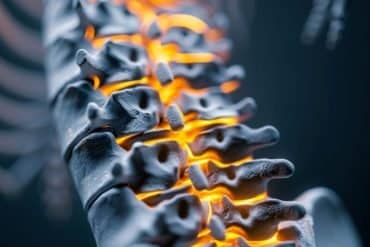In a study, participants who reported poor sleep had a 1.4 times greater chance of death by suicide within a 10-year period than those who reported sleeping well.
Older adults suffering from sleep disturbances are more likely to die by suicide than well-rested adults, according to a study led by a researcher at the Stanford University School of Medicine.
“This is important because sleep disturbances are highly treatable, yet arguably less stigmatizing than many other suicide risk factors,” said Rebecca Bernert, PhD, lead author of the study. Bernert is an instructor of psychiatry and behavioral sciences and director of the Suicide Prevention Research Laboratory at Stanford.
The study was published Aug. 13 in JAMA Psychiatry.
Bernert said older adults have disproportionately higher rates of suicide risk compared to other age groups, making suicide prevention in elderly populations a pressing public health challenge.

Using data from an epidemiological study of 14,456 adults aged 65 and older, Bernert and her colleagues compared the sleep quality of 20 who died by suicide with the sleep patterns of 400 similar individuals over a 10-year period.
They found that participants reporting poor sleep had a 1.4 times greater chance of death by suicide within a 10-year period than participants who reported sleeping well.
The study confirmed the relationship between depression and suicide risk, while also assessing poor sleep as an independent risk factor. “Our findings suggest that poor sleep quality may serve as a stand-alone risk factor for late-life suicide,” Bernert said.
A better predictor of suicide risk
Surprisingly, the study found that, when comparing the two risk factors, poor sleep predicted risk better than depressive symptoms. The combination of poor sleep and depressed mood was the strongest predictor of suicide risk.
“Suicide is the outcome of multiple, often interacting biological, psychological and social risk factors,” Bernert said. “Disturbed sleep stands apart as a risk factor and warning sign in that it may be undone, which highlights its importance as a screening tool and potential treatment target in suicide prevention.
“Suicide is preventable,” she added. “Yet interventions for suicide prevention are alarmingly scarce.”
Bernert has two studies now underway testing the effectiveness of an insomnia treatment for the prevention of depression and suicidal behaviors.
Most of the study’s suicide decedents were white men, which reflects a group at heightened risk for suicide in the general population, Bernert said, noting that additional research is needed to see if the correlation between disturbed sleep and suicide risk extends to women, minorities and younger adults or teenagers.
Bernert recommended organizations such as the American Foundation for Suicide Prevention and the National Suicide Prevention Lifeline (1-800-273-TALK) as resources for people who are struggling with thoughts of suicide.
Other co-authors of the study are affiliated with the University of Iowa, the University of Rochester and Florida State University.
This study was supported by the National Institutes of Health (grants F31MH080470 and K23MH093490), the U.S. Centers for Disease Control and Prevention and the John Simon Guggenheim Memorial Foundation.
Source Margarita Gallardo – Stanford
Contact: Stanford press release
Image Source: The image is credited to NIA/NIH and is in the public domain
Original Research Full open access research for “Association of Poor Subjective Sleep Quality With Risk for Death by Suicide During a 10-Year Period: A Longitudinal, Population-Based Study of Late Life” by Rebecca A. Bernert, PhD; Carolyn L. Turvey, PhD; Yeates Conwell, MD; and Thomas E. Joiner Jr, PhD in JAMA Psychiatry. Published online August 12 2014 doi:10.1001/jamapsychiatry.2014.1126






